For many transgender athletes, the playing field isn’t always level, not necessarily because of skill level, but because of recent policies aimed at discriminating against transgender athletes. For senior Jasmine Pineda, a transgender woman and varsity cheer captain, the journey to feeling like “just a normal girl” took years to materialize into reality.
“Navigating my identity was a really interesting process,” Pineda said. “I knew I was different by the time I was five years old, and I knew I wanted to express female-like characteristics even though I didn’t know what that meant. The pandemic changed everything since I got the time to find who I was, but it wasn’t easy — it was a battle with myself for a while, and trying to accept myself.”
But this battle for self-acceptance is quickly evolving into a national debate over LGBTQ+ rights. Since President Donald Trump began his second term in office, he has signed a series of executive orders jeopardizing the safety of transgender individuals. Vowing to eliminate America’s “transgender insanity,” Trump has already pushed to remove federal funding for youth gender-affirming care, ban transgender people from enlisting in the military, and declared that the federal government would only recognize the male and woman sexes on official documents. His fourth anti-transgender executive order – “No Men in Women’s Sports Executive Order” – was signed on Wednesday, Feb. 25, ordering Title IX, the federal civil rights law prohibiting sex discrimination in schools, to ban transgender girls and women from competing in women’s sports.
“Coming from President Trump, these transphobic messages being perpetuated by the government aren’t necessarily surprising, but it’s definitely disappointing and just scary to be existing as a queer person right now,” senior and vice president of the Gender Sexuality Alliance (GSA) club Evie Scott said. “I think a lot of these policies are trying to put barriers in between queer people and trans people, and it’s just not true to what the community is.”
More recently, California Governor Gavin Newsom, a leading policymaker and long-considered ally of the LGBTQ+ community, stated on Thursday, March 6, in his debut podcast episode of “This is Gavin Newsom” that “it’s deeply unfair” for transgender girls and women to compete in women’s sports. Newsom was joined by conservative political activist Charlie Kirk, who encouraged him to “step out and say no” to transgender women athletes winning in sports. Newsom’s agreement with Kirk on this “issue of fairness” has fueled extreme backlash from both Democrats and the LGBTQ+ community.
“It’s shocking because I always thought that Gavin Newsom was fighting for equality and fighting for LGBTQ+ rights,” Pineda said. “But what people need to realize is that trans people make up such a tiny fraction of professional athletes. Yet even though we make up such a small amount, we’re still ridiculed and at the center of everything. It’s disorienting for sure to hear my governor of the state that I love so much say that — it’s dangerous because I think that kind of like that message shifts people’s minds when they see a leader say such dangerous things.”
As of December 2024, “less than 10” transgender athletes participate in the National Collegiate Athletics Association (NCAA), according to NCAA president Charlie Baker. Just a day after Trump signed the “No Men in Women’s Sports Executive Order,” the NCAA changed its policy to limit women’s competition to athletes assigned female at birth, an act that makes the future for transgender women athletes “even more scary,” according to an anonymous student of a gender minority.
“The number of trans athletes that actually exist in the NCAA is alarmingly low for the amount of time that these lawmakers are spending on this issue,” the anonymous student said. “There’s so much sensationalism over such a small group of people who, at the end of the day, isn’t hurting anybody and is a part of our community. I think this debate was meant to distract people from things occurring in our country – it gives them a reason to fight a common enemy.”
Art teacher Eislyn Wolf-Noyes, who identifies as a transgender woman, hopes for a safer future for the LGBTQ+ community.
“I hope that people understand that there’s a lot of gender diversity, and it’s just a part of the human experience,” Wolf-Noyes said. “Transgender people have been around for as long as we have recorded history — we’ve always been there, and now we’re not going away.”



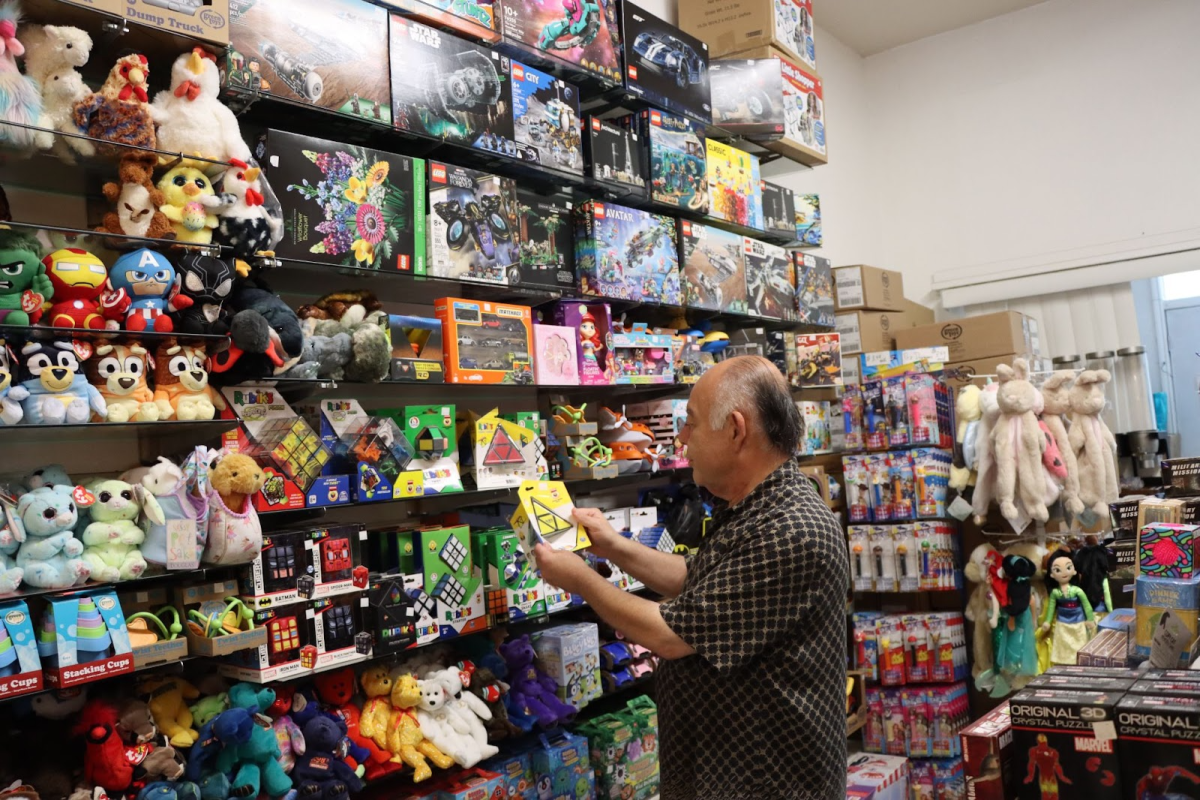
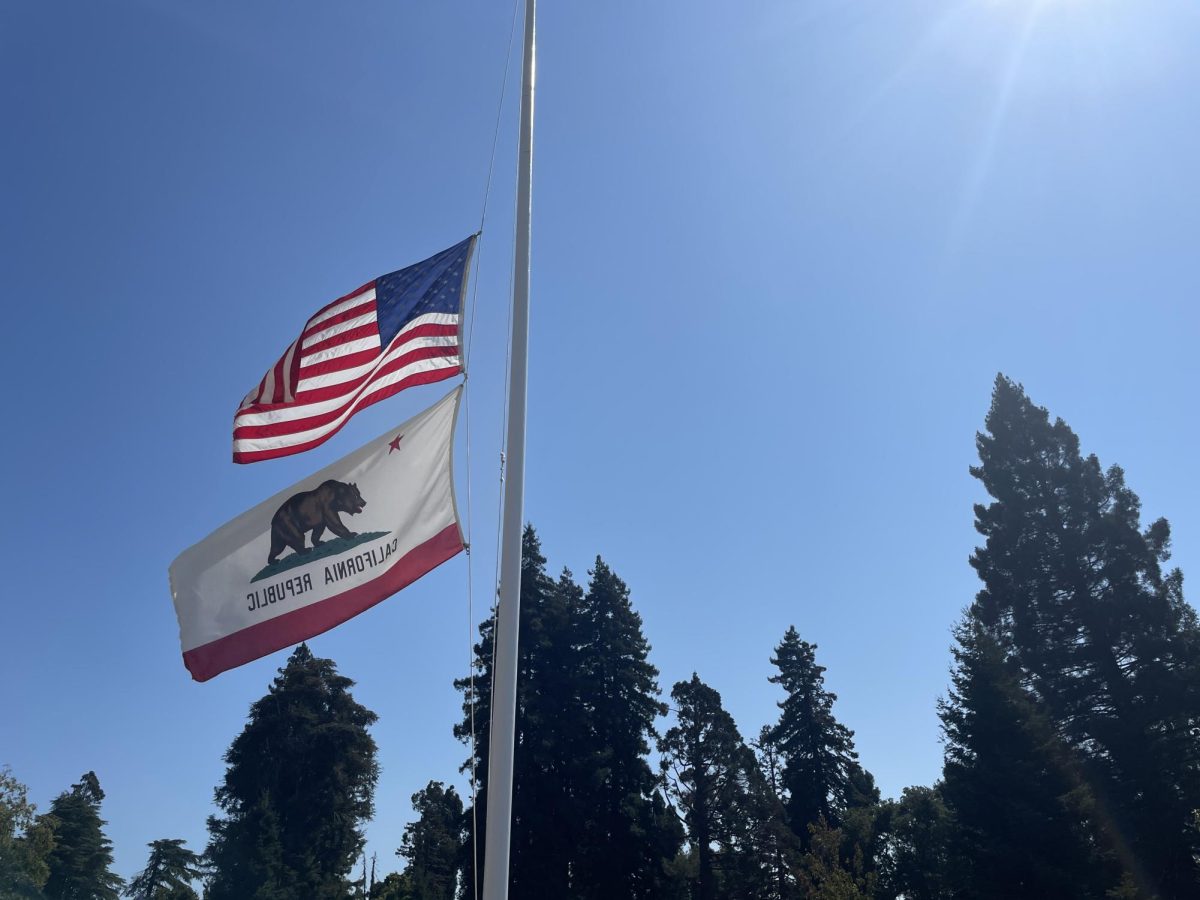
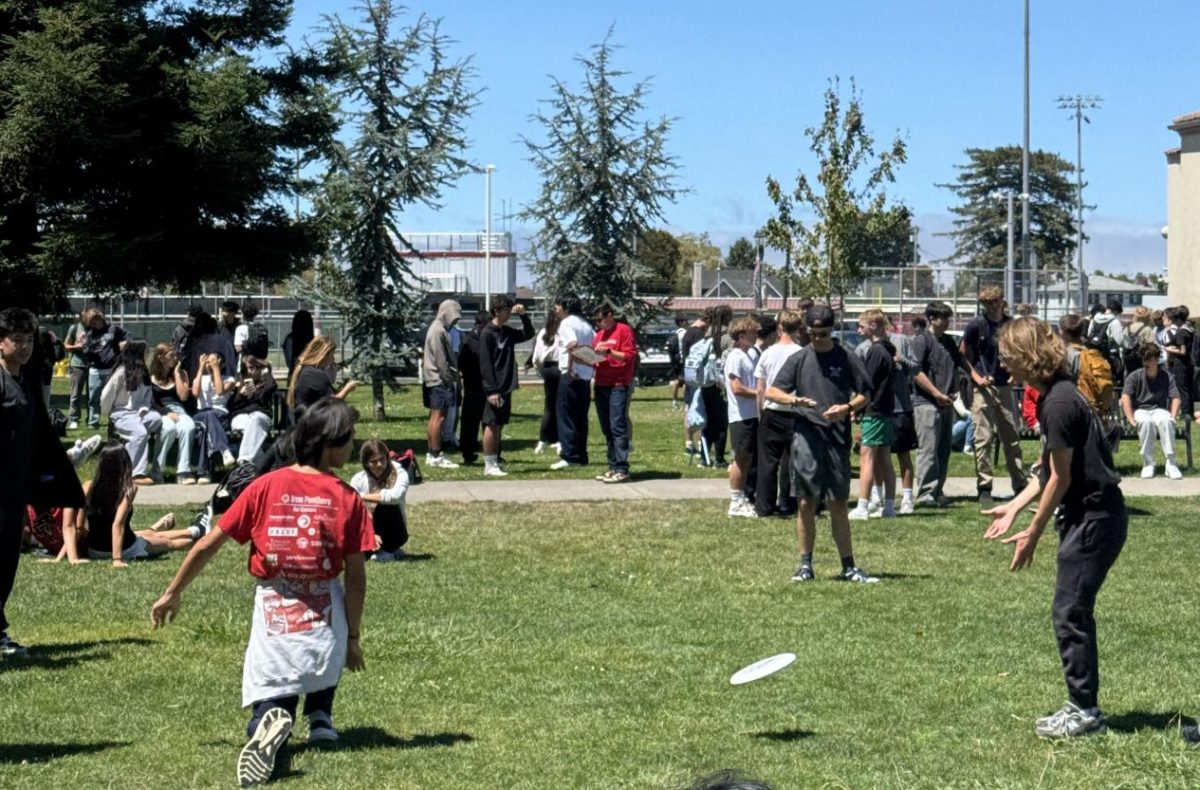



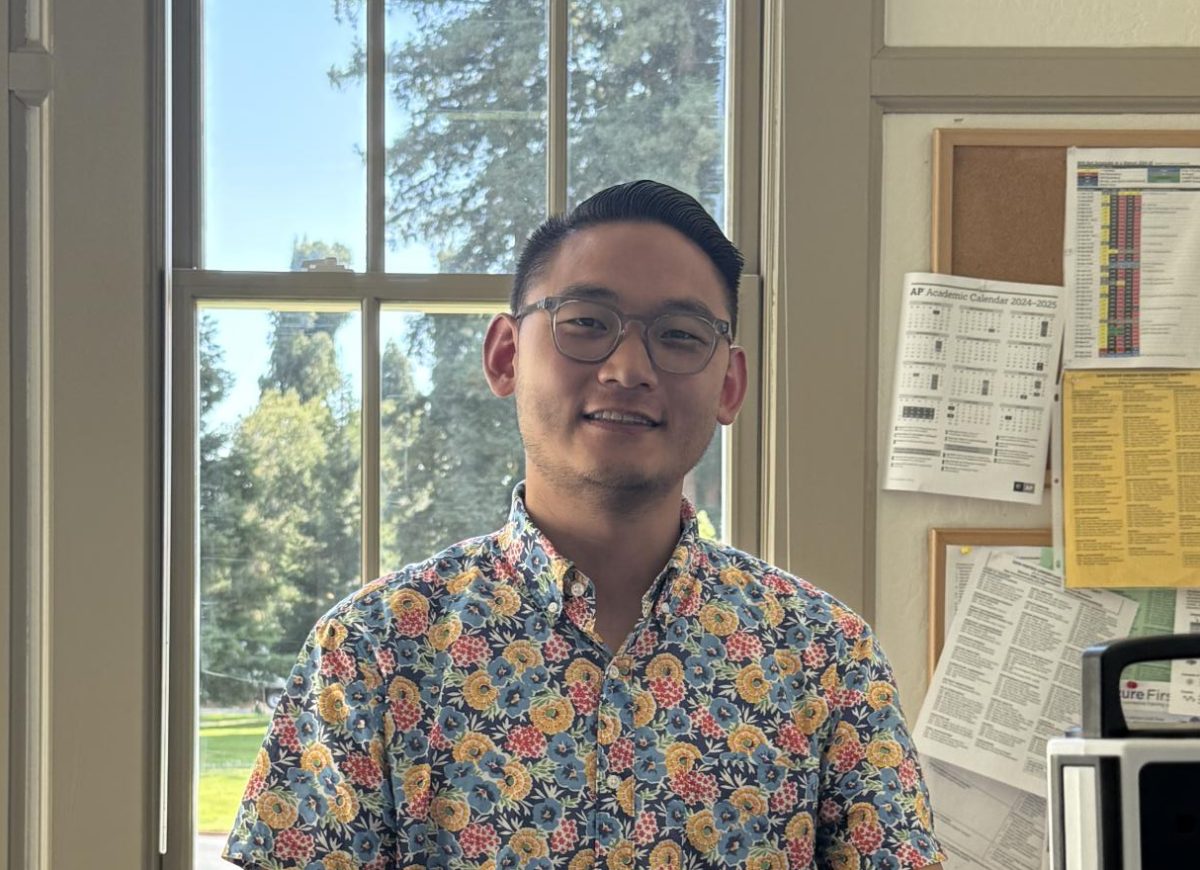





























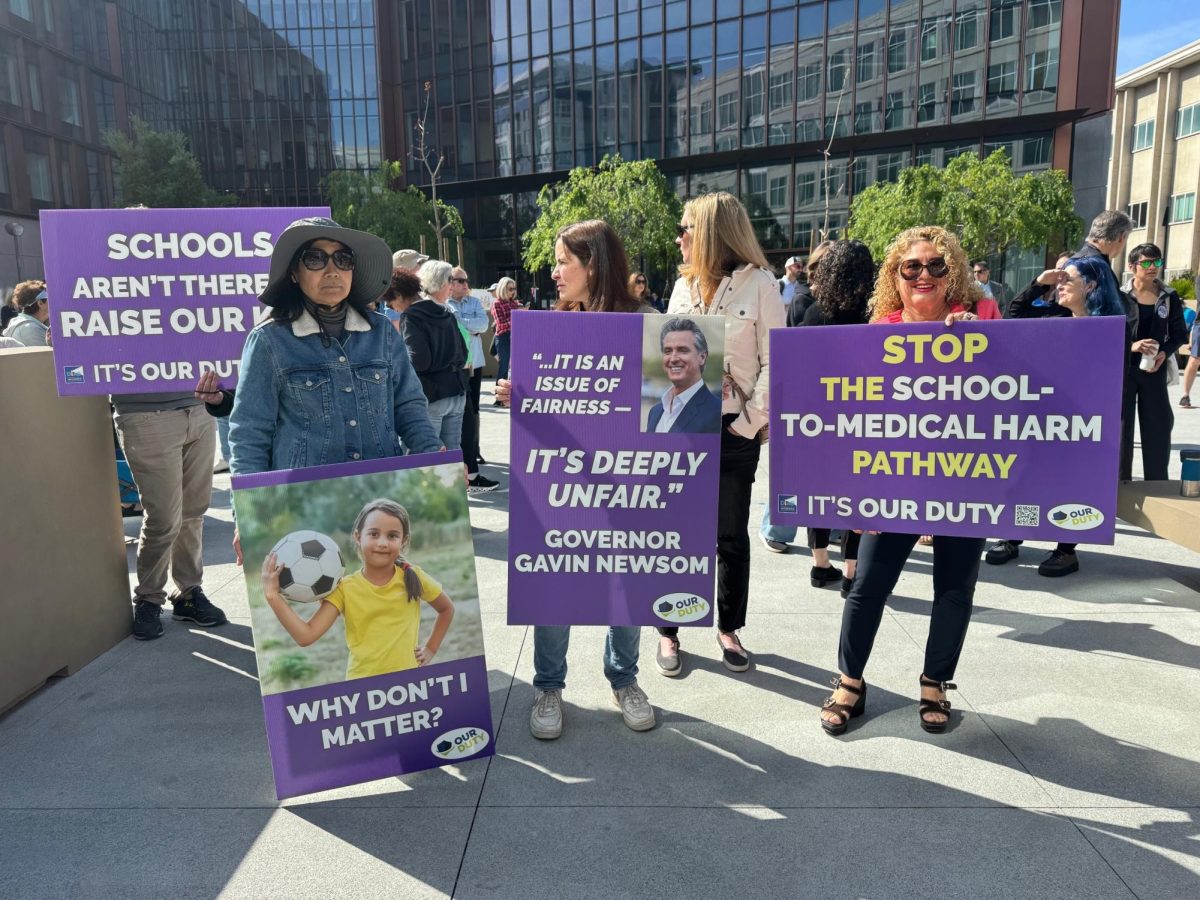
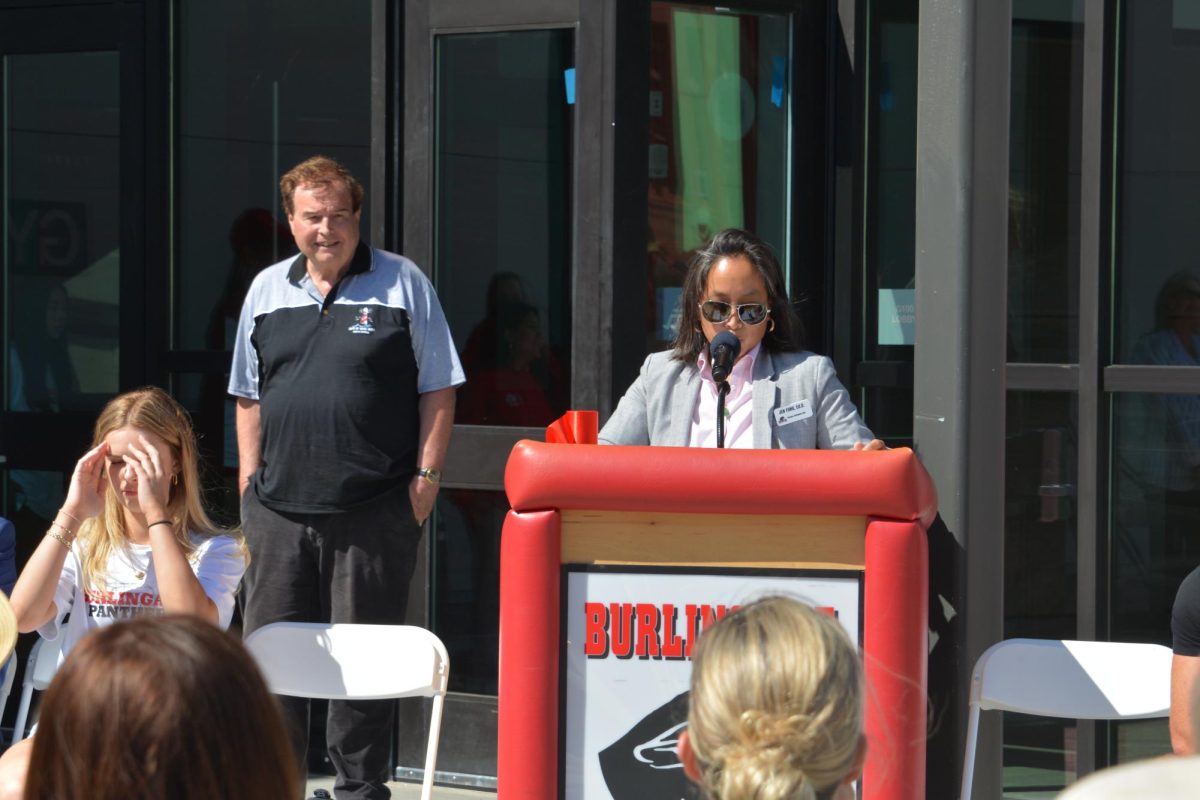
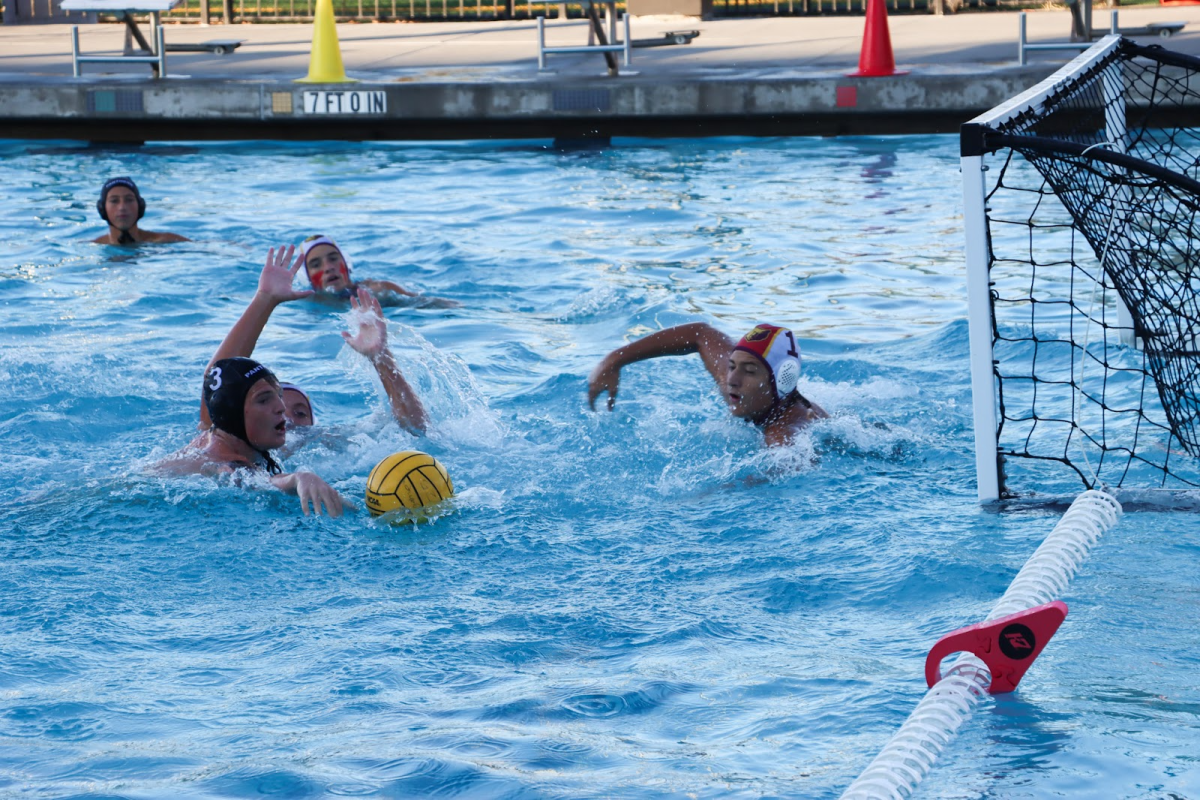
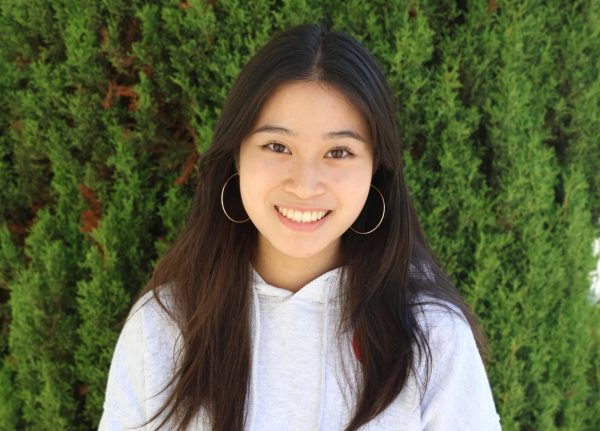
Magdalen • Apr 23, 2025 at 12:26 pm
What about the girls? Title IX was created in 1972 to provide opportunities for female athletes. Allowing male athletes in has destroyed the female category for all girls.
This story is completely focused on males telling females “it’s only a few.” This is not true, but even one male in female sports is too many. See hecheated.org and shewon.org because the NCAA and CIF refuse to keep track of their own athletes, in addition to not protecting female athletes.
Mike • May 6, 2025 at 3:21 pm
First, referring to anyone by a gender other than the one they identify with is both insulting and sexist. And it is also a form of hate speech, which has no place in the Burlingame High School Community.
For anyone who believes that it is okay to mis-gender people, consider how the “gender police” (including J.K. Rowling and Elon Musk) attacked Imane Khelif, the Algerian cisgender woman who won a gold medal in the 2024 Paris Olympics; or the cisgender woman who was confronted by police officers in Arizona Walmart restroom for looking too masculine. In both cases, we are talking about cisgender women of color, attacked, harassed, questioned, because they did not conform to white, middle-class expectations of femininity.
To clarify: Gender is not binary; it exists on a spectrum. There are both cis women and girls (who identify with the gender they were assigned at birth) and trans women (women who identify as women, but who were assigned male at birth). Both cis and trans women are women; they just had different pathways to womanhood. There are transmen who identify as men, but were assigned female at birth. There are also many people who don’t identify as either male or female (e.g., nonbinary, gender nonconforming, gender fluid, gender queer, etc.). Gender diversity is not a new phenomenon. It has always existed, and it is well documented historically. (See this short article from Teen Vogue, for some examples).
The actual controversy in sports is not about men trying to cheat, or beat up on girls and women, by sneaking into the female category. It’s about whether or not it is fair for trans girls and women to compete in the same category as cis girls and women. And this question of fairness is based on the assumption that transwomen and girls necessarily have physiological and anatomical advantages over ciswomen and girls. But there are a number of assumptions here that need to be examined.
The first assumption is that men necessarily have an advantage over women in sports. This assumption is based on a bell curve of sexual dimorphism. On average, cis men are taller and have more muscle mass than cis women. But there is a wide spectrum of body shapes and sizes within all genders. There are cis women who are much taller than average for cis women. Indeed, the WNBA and the Professional Volleyball Association are filled with women who are taller than average. Do they have an unfair advantage over women of average height? Should they be banned from competition because of this unfair advantage? There are also short transwomen. Does a short transwoman have an unfair advantage over a taller ciswoman in basketball or volleyball? And there are cis women who are taller and more muscular than many cis men and many transwomen.
Another assumption is that sexual dimorphism has a significant impact on performance in all sports, or the same impact on all sports. However, this not true. For some sports, like shooting, it is hypothesized that cis women actually have an advantage over cis men, as well as transwomen. In other sports, there may be no significant gender-based advantage at all. In Big Wave Surfing, for example, men and women compete together in the same category. And in other sports, still, the advantage may have more to do with size than sexual dimorphism. Consider that many sports (e.g., boxing, wrestling) have weight categories to balance out the advantage that a larger person might have over a shorter person. And many high school leagues allow wrestling between boys and girls, assuming they are in the same weight class.
A lot of the dimorphism that exists in humans doesn’t even develop until after puberty. Consequently, many youth sports leagues have been successfully coed for younger kids for decades, since kids that age haven’t yet developed significant differences in anatomy. A transwoman or girl who has transitioned before, or early in, puberty will likely develop a body size and shape that is more in line with the averages for ciswomen.
Lastly, the websites referred to, hecheated.org and shewon.org, are transphobic hate sites that make numerous outlandish claims that they cannot document. In this episode of “Last Week Tonight” Jamie Oliver debunked SheWon.org’s false claim that “900 medals” in women’s sports were “displaced” by transwomen.